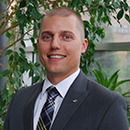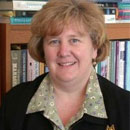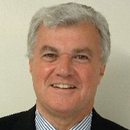Master of Science in Athletic Training
The Master of Science in Athletic Training is a professional graduate degree, delivered in a hybrid model, designed to prepare students for eligibility to take the Board of Certification Exam (BOC). Athletic Trainers (AT) are highly qualified, multi-skilled healthcare professionals who work collaboratively with a team of healthcare professionals to provide preventative services, clinical diagnosis, therapeutic intervention and rehabilitation of injuries and medical conditions, and emergency care. Recognized by the American Medical Association as Healthcare Professionals, Athletic Trainers are employed in numerous settings including high schools, colleges and universities, professional sports, sports medicine clinics, performing arts, military, and hospitals. While working in a variety of professional settings, thletic trainers work under the direction of a physician as prescribed by state licensure statutes. The NATA Code of Ethic established the principles of ethical behavior that should be followed in the practice of athletic training.
In accordance with our connected learning philosophy, graduates of the program will acquire advanced knowledge and understanding of current trends and issues in each content area outlined by the Commission on Accreditation of Athletic Training Education (CAATE) standards through active learning and projects that engage students in the practice of their fields of study through collaborative learning. Students will develop problem-solving skills to prepare them to assume leadership roles in clinical practice, educational settings, and research as athletic trainers.
Effective 2022 institutions of higher education must grant a master's degree in Athletic Training for entry into the profession. Lasell College Athletic Training Program is accredited by the Commission on Accreditation of Athletic Training Education (CAATE). The program has been placed on probation as of February 1, 2019, by the CAATE, 6850 Austin Center Blvd., Suite 100, Austin, TX 78731-3101. Additionally, information regarding temporary probationary status is available upon request.
Goals and Outcomes
Graduates of the Masters of Science in Athletic Training will acquire:Advance knowledge and skills in core competencies in the following areas as established by the CAATE 2020 Professional Standards:
- Patient-Centered Care
- Interprofessional Practice and Interprofessional Education § Evidence-Based Practice
- Quality Improvement
- Health Care Informatics
- Professionalism
Advance knowledge and skills in the following content area as established by the CAATE 2020 Professional Standards:
- Patient/Client Care
- Prevention, Health Promotion, and Wellness
- Health Care Administration
· Advance skills in both oral and written communication
· Advance skills in discipline specific research
The program culminates in a research capstone on a topic of interest related to the field of Athletic Training. Graduates of the program will be prepared to engage in scientifically based analysis and development of healthcare research.
Graduate students in athletic training have access to faculty mentors with a wide variety of contemporary expertise in athletic training and the healthcare industry. Located in the Metropolitan Boston area, the department maintains a multitude of clinical affiliation agreements with specialized healthcare facilities, hospitals, outpatient clinics, and educational settings for students to complete clinical education requirements.
Program Fee/Additional Costs
Each Athletic Training student is charged a program fee for each semester enrolled on the program. The program fee is used to provide instructional supplies, discipline-specific technology, and support for clinical preceptor. Students in the Masters of Science in Athletic Training will incur additional costs associated with their clinical education experiences, including the cost associated with travel and housing at affiliated clinical sites, dress code requirements, background checks, web-based assessment platforms, and professional memberships.
| Course Code | Course Title | Credits |
|---|---|---|
| Core Courses | ||
| MSAT700 | Prof Behaviors & Evidence Based Practice | 3 |
| MSAT701 | Functional Anatomy | 3 |
| MSAT702 | Diagnostic Procedure | 3 |
| MSAT703 | Orthopedic Assessment & Diagnosis I | 3 |
| MSAT704 | Orthopedic Assessment & Diagnosis II | 3 |
| MSAT705 | Prevention & Health Promotion | 3 |
| MSAT707 | Emergency Response & Care | 3 |
| MSAT710 | Physical Medicine & Rehabilitation I | 3 |
| MSAT711 | Physical Medicine & Rehabilitation II | 3 |
| MSAT721 | Integrated Clinical Experience I | 2 |
| MSAT722 | Integrated Clinical Experience II | 2 |
| MSAT723 | Immersive Clinical Experience I | 3 |
| MSAT724 | Integrated Clinical Experience III | 4 |
| MSAT725 | Integrated Clinical Experience IV | 4 |
| PSYC714 | Psyc of Sport, Injury & Rehabilitation | 3 |
| RSCI704 | Concepts & Application of Manual Therapy | 4 |
| RSCI713 | Pharmacology | 3 |
| RSCI715 | Advanced Pathophysiology | 3 |
| RSCI717 | Healthcare Leadership & Decision Making | 3 |
| RSCI780 | Quantitative & Qualitative Research | 3 |
| RSCI781 | Capstone | 3 |
MSAT700 - Prof Behaviors & Evidence Based Practice
This course focuses on the ever-changing contemporary issues that impact direct and indirect patient care, and highlights the importance of evidence-based practice. The NATA code of ethics and BOC Standards of Professional Practice will be used as a framework to highlight the importance of working as part of a health care team, advocating for patients and the profession, and providing medical care in a non-discriminating or prejudicial manner.
MSAT701 - Functional Anatomy
This advanced course in human anatomy investigates the regional, functional anatomy of the muscular system. Students explore and interact between innervation, origin, insertion and action of most of the muscles of the human body especially as they pertain to human movement. Students will also investigate the detailed anatomy of the major joints of the body, nervous system, and vascular system as they pertain to the skeletal muscles. At the completion of this course the student will (1) identify on a human skeleton bones and bony features for the major joints of the body, (2) label the important bones and bony features on a skeletal chart, (3) draw and label major muscles on a skeletal chart, (4) identify and palpate these muscles on a human subject, (5) list and organize the muscles that produce the primary movements for all the major joints of the body, and (6) analyze multiaxial and multiplane movements during concentric and eccentric muscle actions.
MSAT702 - Diagnostic Procedure
This course will identify and describe various diagnostic and imaging techniques used in medical practice presenting both physiological and pathological states. Interpretation and integration of test/imaging results in the athletic training diagnosis, plan of care, with appropriate referral e emphasized. Diagnostic and imaging procedures covered in the course will include but not be limited to: physical exam and health assessment, X-ray, CT scan, MRI, bone scan, fluoroscopy, blood work, urinalysis, and electrocardiogram.
MSAT703 - Orthopedic Assessment & Diagnosis I
This course focuses on assessment and diagnosis of injuries and illness affecting the lower extremities and lumbopelvic hip complex. The hands-on component emphasizes developing clinical skills including obtaining a medical history, pain level, patient observation, palpation of bony landmarks, functional assessment, evaluating joint and muscle function, performing stress and selective tissue test, neurovascular assessment along with additional diagnostic procedures.
MSAT704 - Orthopedic Assessment & Diagnosis II
This course focuses on assessment and diagnosis of injuries and illness affecting the upper extremities, head, spine, thorax and abdomen. The hands-on component emphasizes developing clinical skills including obtaining a medical history, patient observation, palpation of bony landmarks, conducting a functional assessment plus physical examination, evaluating joint and muscle function, neurovascular assessment, performing stress and selective special tests, along with additional diagnostic procedures.
MSAT705 - Prevention & Health Promotion
This course will provide an overview of procedures and protocols designed to reduce the risk of injury and illness, plus enrich patient wellness and performance. Appropriate application of prophylactic, restrictive, and assistive devices will be emphasized. Additional topics covered in the course include: pre-participation physical examination, wellness strategies, injury prevention programs, monitoring environmental conditions, fluid and nutritional recommendations, physiological monitoring systems, biometrics, and population health.
MSAT707 - Emergency Response & Care
This course emphasizes principles and techniques for recognition and management of potentially emergent life-threatening and non-life-threatening urgent medical situations. These include but are not limited to: cardiac compromise, respiratory compromise, environmental conditions, cervical spine compromise, traumatic brain injury, hemorrhage, fractures, dislocations, anaphylaxis, exertional sickling, rhabdomyolysis, hyponatremia, diabetes, drug overdose, wounds, testicular injury and musculoskeletal injury. At the completion of the course students will be eligible for certification in CPR Professional Rescuer/AED and First Aid by the American Red Cross. *
MSAT710 - Physical Medicine & Rehabilitation I
This course emphasizes the theory of pain management and biomechanical assessment of patients of all levels of physical activity to implement appropriate, evidence-based, interventions aimed at improving and enhancing function throughout a performance spectrum. Emphasis is placed on concepts of patient-centered plan of care that integrates physical means and therapeutic exercises to enable the patient to prevent or remediate impairments of body functions and structures, enhance activities and participation, reduce risk of injury, optimize health, and enhance movement and well-being.
MSAT711 - Physical Medicine & Rehabilitation II
This course emphasizes the application of therapeutic exercises and physical agents for patients of all levels of physical activity to implement appropriate, evidence-based, interventions aimed at improving and enhancing performance. Emphasis is placed on a patient-centered plan of care the integrates physical means and therapeutic exercises to enable the patient to prevent or remediate impairments of body functions and structures, enhance activities and participation, reduce risk of injuries, optimize health, and enhance movement and well-being.
MSAT714 - Behavioral and Mental Health
Behavioral and Mental Health
MSAT721 - Integrated Clinical Experience I
This supervised educational field experience at an affiliated clinical site, takes place concurrently with other required graduate coursework. Integrated clinical experience is designed to progress the student toward autonomous patient- and client-care practice. The purpose of this course is to introduce students to the practice of athletic training and develop competency in the management of emergent and urgent care.
MSAT722 - Integrated Clinical Experience II
This course incorporates supervised educational experience at affiliated clinical sites. Emphasis is placed on the athletic trainer’s role in working with patients and is designed to allow students to begin developing clinical proficiency in the evaluation, diagnosis, and treatment of lower extremity dysfunction. Students will also participate in sports medicine clinics to apply hands-on skills within an active patient population.
MSAT723 - Immersive Clinical Experience I
This supervised educational field experience at an affiliated site is designed to allow students full immersion in the clinical setting. This practice-intensive experience is intentionally designed to allow students to experience the totality of care provided by athletic trainers. Students will apply critical thinking along with hands-on skills to a patient population. An online component will be incorporated with this immersion rotation for students to share in their interprofessional connected learning experiences.
MSAT724 - Integrated Clinical Experience III
This supervised educational field experience at an affiliated clinical site, takes place concurrently with other required graduate coursework. Integrated clinical experience is designed to progress the student toward autonomous patient- and client-care practice. Emphasis is placed on the athletic trainer’s role in working with patients and is designed to allow students to begin developing clinical proficiency in the evaluation, diagnosis, and treatment of upper extremity and head and spine dysfunction.
MSAT725 - Integrated Clinical Experience IV
This supervised educational field experience at an affiliated clinical site, takes place concurrently with other required graduate coursework. Emphasis is placed on the athletic trainer’s role in working with patients and is designed to allow students to develop clinical proficiency in all domains of athletic training and facilitate increasing levels of autonomous practice.
RSCI701 - Advance Kinesiology and Biomechanics
The course involves a study of joint structure, joint function, and the biomechanical principles underlying the kinetics and kinematics of human motion, including normal gait and human movement. Emphasis is placed on the interaction between biomechanical and physiological factors in musculoskeletal and neuromuscular function, and the application of kinesiological principles to clinical rehabilitation practice.
RSCI702 - Pathokinesiology
The student will be introduced to a systematic evaluation approach based on the pathokinesiological model. The pathokinesiological model will examine human movement systems and it significance to regions of the human body. These regions will be recognized as potential sites for integrated pre-habilitation and rehabilitation exercise programs. Pre-requisite RSCI701
RSCI703 - Musculoskeletal Functional Assessment
The emphasis of this course is on the assessment of functional orthopedic conditions and musculoskeletal screening. The course emphasizes the application of systems analysis principles to clinical situations. The course goal is to improvethe clinician's ability to evaluate the patient's complaint as related to movement andidentify those patients who require additional orthopedic evaluation & referral whileassessing patient complaints in a logical deductive manner. Screening and assessment tools will be demonstrated as part of the process. In addition, the student is able to assess clinical scenarios as illustrated by relevant case studies.
RSCI704 - Concepts & Application of Manual Therapy
This hands-on course provides the theory and clinical application of current best practices in manual therapy techniques utilized in the treatment of orthopedic conditions that limit functional movement. The skills acquired in this course intend to produce any or all of the following effects: improve tissue extensibility; increase range of motion; mobilize soft tissues and joints; improve muscle function; modulate pain; and reduce soft tissue inflammation or restrictions in movement. A certification in a manual therapy technique will be acquired at the completion of the course. RSCI 704 is an on campus course scheduled during the required summer residency.
RSCI705 - Evidence Based Rehabilitation
The purpose of this course is to increase student understanding of various rehabilitation issues facing America and the world today. This course focuses students toward the ever-changing contemporary issues that impact direct and indirect client care.
RSCI706 - Rehabilitation Program Design for Human
This course will introduce pre-habilitation and rehabilitation exercise strategies based on limit function and dysfunction. The student will receive detailed insight into the design of corrective exercise programs. The systematic approach of an integrated corrective exercise design uniquely blends the variables of available flexibility, isolated and integrated strengthening, and exercise design to provide the student with the necessary foundation in designing and developing safe prevention and corrective exercise programs. Pre-requisite RSCI703.
RSCI708 - Applied Nutrition Across the Lifespan
This course provides an in-depth exploration of contemporary issues nutrition for active individuals across the life span. Course topics will include: nutrition timing, caloric expenditure, performance enhancement dietary supplements, dietary lipids and heart disease, dietary fiber and health, and influence of life +style factors on nutrition. Controversies in nutrition, ergogenic aids and cultural aspects of food are also discussed. In addition, the course covers energy and nutrient needs for physical and athletic activities. Common myths and fallacies concerning diet and athletic performance as well as appropriate dietary approaches for specific activities and active people will be addressed.
RSCI709 - Concepts & Application of Manual Therapy
Concepts & Application of Manual Therapy
RSCI712 - Field Experience
This course is designed for students interested in completing a field experience in their area of study. Students are expected to complete a minimum of 150 hours of supervised experience in an approved setting. For students in New England, the department will facilitate the placements at an approved affiliated site. For students outside of New England, the Associate Dean must approve the field experience site prior to enrolling in the course.
RSCI713 - Pharmacology
This course serves as a foundation to general pharmacology, focusing on categories of medications and their interaction with body systems. At the completion of this course, students will be able to integrate pathophysiological principles of pharmacology and patient assessment finds to formulate an impression and implement a pharmacologic management plan.
RSCI715 - Advanced Pathophysiology
This course involves an in-depth evaluation of disease and injury processes across the lifespan and their relevance to therapeutic rehabilitation are presented. Attention is given to all major physiological systems and their significance in the rehabilitation sciences.
RSCI716 - Ethical Issues in Healthcare Professions
This course is a study of the application of ethical principles, which includes the legal factors and professional behavior, which impact patient management and the rights of the consumer in the provision of medical and rehabilitation services. Ethical issues explored include: human value development, decision making, basic principles of health care, the nature of rights, confidentiality and management of health care information, professional gate keeping as a function of role fidelity, autonomy and paternalism, and justice and the allocation of scarce resources.
RSCI717 - Healthcare Leadership & Decision Making
This course is intended to prepare students for the leadership decisions and actions that are inherent in performance enhancement management and practice within healthcare and wellness settings. Principles and applications of leadership will be explored, including persuasiveness, leading and directing teams, leading within organizations, and leadership opportunities in shaping policy in healthcare and wellness settings. Techniques for managing change and empowering others are included in this course. Topics related to effective leadership are issues of power, motivation, delegation, team building, persuasion and negotiation, and total quality improvement are included in this course.
RSCI780 - Quantitative & Qualitative Research
This course provides an overview of foundations of research design and the uses and interpretation of results. Content includes: reviewing the literature, developing research problems/questions; hypothesis testing, experimental, quasi-experimental and other research designs; and evaluating research studies as they relate to evidence-based practice in the health professions. The intended outcome is to familiarize students with the evidence-based guidelines associated to clinical outcomes and evidence-based practice.
RSCI781 - Capstone
Through the completion of a research project, on a topic within the field, this course serves as an essential outcome component to augment the professional development and new learning that occurs in didactic course work and demonstrates the ability of the graduate to make significant contributions to their professions. Pre-requisite: must be taken in final semester of program.Prerequisite: RSCI780

Cristina Haverty
Associate Vice President of Workforce Development and Global Engagement/ Professor, Athletic Training
Office: Alexander STC
Email: chaverty@lasell.edu

Lori Rosenthal
Assistant Provost; Professor of Psychology
Office: Plummer
Email: lrosenthal@lasell.edu

Janice Barrett
Professor of Communication; Chair, Graduate Communication Program
Office: Donahue 108
Email: jbarrett@lasell.edu

Keith Belmore
Associate Professor of Athletic Training and Graduate Chair of Athletic Training
Office: Alexander STC 104N
Email: KBelmore@lasell.edu

Linda Bucci
Professor & Program Chair of Justice Studies, Graduate Chair of Criminal Justice
Office: Plummer
Email: lbucci@lasell.edu

Sarah Giasullo
Assistant Professor of Athletic Training; Graduate Chair of Health Sciences
Office: Alexander STC 104T
Email: SGiasullo@lasell.edu

Janet Huetteman
Graduate Chair of Management and Marketing; Associate Professor of Marketing
Office: 23 Maple Street, Office #5
Email: JHuetteman@lasell.edu

Young-Tae Kim
Associate Professor of Sport Management; Graduate Interim Chair of Sport Management
Office: Alexandar STC
Email: ykim@lasell.edu

Ron Laham
Assistant Professor of Athletic Training/ Exercise Science
Office: Alexander STC
Email: RLaham@lasell.edu

Luis Lopez-Preciado
Associate Professor of Communication
Office: Donahue
Email: LLopez-Preciado@lasell.edu

Meryl Perlson
Chair of Communication; Professor of Communication
Office: Donahue 107
Email: mperlson@lasell.edu

Matthew Reilly
Chair of Business and Interim Chair of Sport Management; Assistant Professor of Business
Office: DeArment
Email: MReilly@lasell.edu

Claudia Rinaldi
The Joan Weiler Arnow ’49 Professor/Professor of Education, Chair of Education
Office: Brennan Library
Email: CRinaldi@lasell.edu

Daniel Sargeant
Associate Professor of Sport Management
Office: Alexander STC
Email: DSargeant@lasell.edu

Nancy Waldron
Assistant Provost; Professor of Entrepreneurship and Management
Office: DeArment
Email: nwaldron@lasell.edu

Brian Wardyga
Professor of Communication; General Manager, 109.2FM WLAS & LCTV
Office: Brennan Library, G04F
Email: bwardyga@lasell.edu
- Academic Policies 19-20
- Admission to Graduate Studies
- Course Descriptions
- Graduate Financial Information
-
Programs of Study
- Master of Science in Human Resources
- Master of Education
- Master of Science in Marketing
- Master of Science in Communication
- Master of Science in Criminal Justice
- Master of Science in Management
- Master of Science in Nutrition for Human Performance
- Master of Science in Athletic Training
- Master of Science in Project Management
- Master of Science in Rehabilitation Science
- Master of Science in Sport Management
- Graduate Certificates
- MBA





